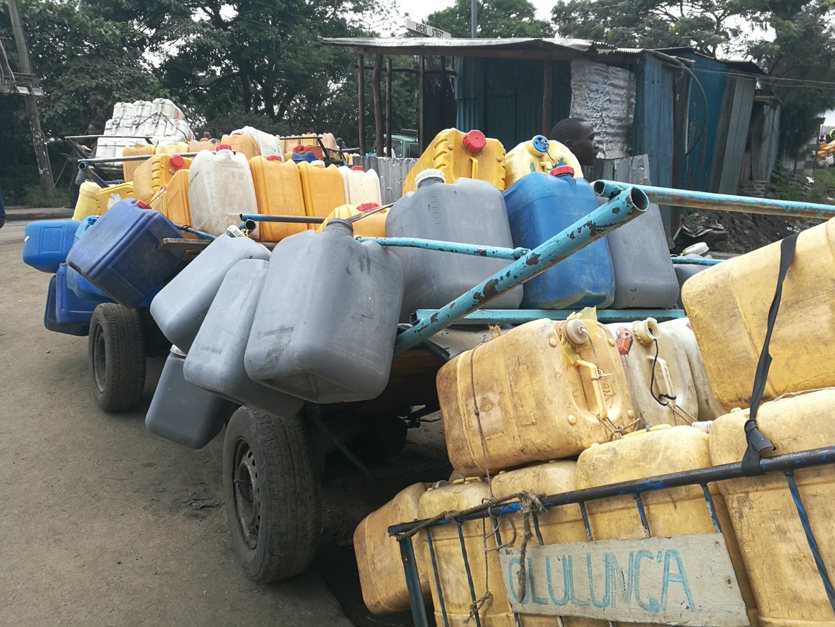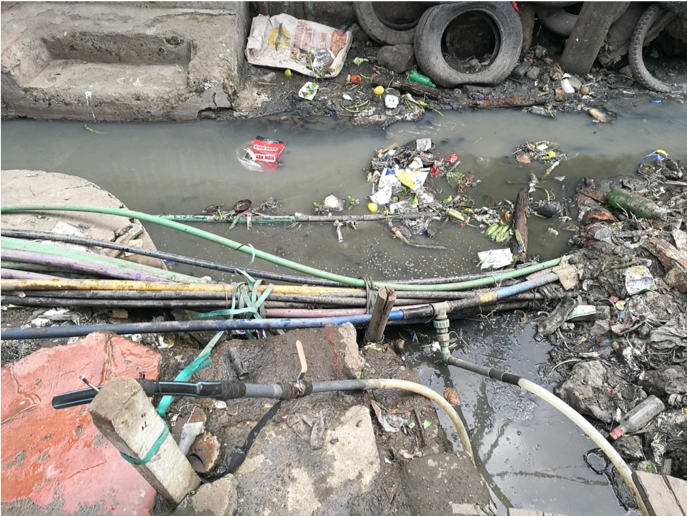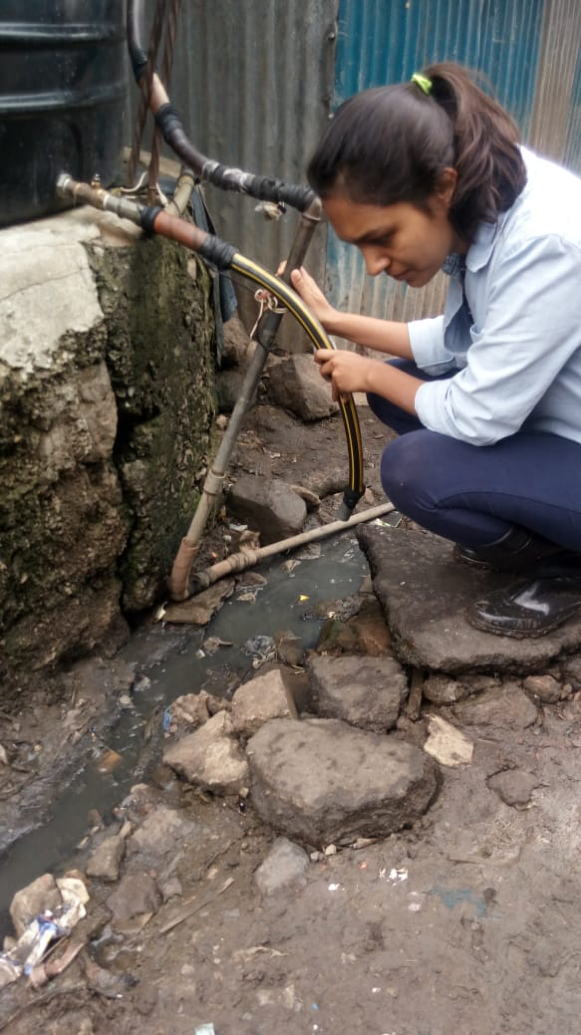The Story of H2O: Informal Water Provision in Nairobi’s Low-income Settlements
“Nairobi is a city of opportunities” said Mwangi – a 26-year old man who worked as an assistant to a private water provider. Mwangi’s job was to keep a check on the water pipes and kiosks that this employer recently installed in the settlements of Mukuru to sell water at a price of 5 Kenyan Shillings ($0.05) per 20-liter jerrycan. Mwangi aspired to start his own water business one day, as he explained, “Sister, in this city, water is the most valuable possession one would have. If I can run a water business consistently, it is pesa ya haraka – cash cow/quick money.” Responding to the perplexed expression on my face, he said, “It is simple, just work on making the right connections, with the right people.” Every year I go to Nairobi to conduct fieldwork, Mwangi’s words echo in my mind. What makes selling water so lucrative? Who are the right people to make connections with? I also ponder the tone of ease, self-evidence with which Mwangi called it a ‘cash cow’. It appeared to suggest that the question mark on my face was rather naïve, ignorant of the realities of urban life in Nairobi city.
Figure 1: Cart full of Water Containers
In Africa, over half of the urban population (61.7%) lives in informal[1] settlements (Habitat, 2013). Almost 50% of urban population in Africa resorts to private small-scale providers such as street vendors, water resellers, kiosks and water tankers (Dardenne, 2006) with an increasing figure of 80% in urban centers in Nigeria, Kenya, Senegal and Sudan (Kariuki & Schwartz, 2005).
Figure 2: Water Pipes
I conduct research in Mukuru, a low-income informal settlement located in the eastern periphery of Nairobi. Mornings in Mukuru are considered the most happening time of the day. Thousands of women, chatting and laughing, parade through narrow, dusty lanes, to collect water, a commodity that is considered to be the most valuable in Mukuru. In this densely packed settlement which houses 300,000 people, 97% of residents do not have water connection in their homes. Due to the lack of government-operated water supply, informal water providers, locally called ‘water cartels’ control water provision through laying water pipes and kiosks in the settlement. They buy water from the publicly owned municipal water company at a highly subsidized rate and sell it. As Mwangi rightly mentioned, “make connections with the right people”, informal water provision networks are run with covert sanction from the water company employees by acquiring illegal water connections, transporting this water through pipelines to Mukuru. These pipelines run in line with open sewers and garbage dumps, residents paying a price 4 times more than the average water price in Nairobi. Every year, during the monsoons, there are severe cholera outbreaks in Mukuru, that have immense impact on the communities’ health and economic wellbeing. My research asks: (1) Who are informal water providers? How do they run their water business and what is the spread of their networks? (2) What does it mean to have connections with the right people? How does the formal municipal water governance system interact with informal water providers? Finally, (3) How do households in Mukuru experience this water provision system? This summer, I conducted fieldwork with women and households, non-profit groups, Nairobi government officials and the cartels themselves to understand the improvised water networks in Mukuru. I conducted interviews, group discussions, household surveys and mapping exercises with multiple stakeholders to understand how these water systems could be improved and leveraged to fulfill the ‘water for all mandate’ underscored in the Sustainable Development Goals. Fieldwork reveals that the services of informal water providers are valued except for some negative externalities – affordability and quality. Water providers played a pivotal role in making water accessible and reliable due to the spread of their networks. Therefore, as a part of the research, I am closely working with Nairobi County employees to see how interventions could be carried out in terms of monitoring prices and fixing leaks in pipes. Afterall, water providers are local people like Mwangi, who can fill in gaps in settlements where supply municipal water is difficult due to land tenure issues.
As my fieldwork goes forward, I realize that the story of Nairobi is that of many urban areas, where water insecurity is a product of water management and not scarcity per se. Moreover, these heterogenous water systems, tells us about the relationship between ecology and politics, between empowerment and disempowerment through the flow of water. My dissertation research is an investigation into the story that is hidden behind the flow of this H2O – piped from reservoirs, transported, bought and sold, transported again by small-scale providers, stored, sold to people and finally led back into the nature in the form of sewage. A story is hidden somewhere in the flow of this water that tells us many things about the city’s history, its infrastructures and diverse practices of its people for everyday survival.
Figure 3: A Closer inspection of some Pipies
_______________
[1] Informal settlements lack basic services such as water, sanitation and tenure security vis-à-vis the land or the dwellings. Mukuru settlements are informal “slum” settlements characterized by poverty and large agglomerations of dilapidated housing located in the most hazardous urban land.




